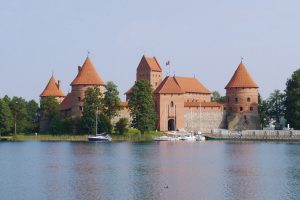EU committee recommends action on loot boxes

A European Union committee has recommended the bloc take action on loot box design standards and safeguards in online games.
Belgium.- A European Union (EU) committee has recommended standards be drawn up for the design of loot boxes in online games.
The recommendation comes in a study from the EU’s Committee on Internal Market and Consumer Protection (IMCO), which the committee says is the most comprehensive European report yet to analyse loot boxes’ design in online games and their engagement mechanics and monetisation dynamics.
It said it carried out the research as various EU member states have raised concerns that loot boxes represented “a systematic attempt to turn gamers into gamblers”.
The IMCO evaluated access and cost, transparency in terms of the probability of obtaining loot box items, the type of content, and whether the prizes carried any real money or in-game value
The IMCO said: “Research on the behavioural effects of loot boxes exists but more is needed to provide robust and conclusive findings.
“Some research has found that problem gambling and paying for loot boxes are related. However, there is no consensus on a causal link between loot boxes and harmful behaviour.”
Experts concluded that “not all loot boxes carry risks” but that some game designs were problematic and could have negative psychological and financial effects.
They noted that there would be difficulties in the governance and monitoring of standards, since the EU sees gambling as an area of national competence for member states. Any EU-wide intervention on loot boxes may cause friction with the European video games market.
The report says: “Several national authorities have investigated under what conditions loot boxes may qualify as gambling. With the exception of Belgium, the Netherlands and Slovakia, no European Union (EU) country has come to the conclusion that loot boxes fulfil their national gambling criteria.”
It recommends that rather than tackle regulation, the EU focus on the area of consumer protection over which it can maintain authority, and develop standards on loot box design and transparency.
It said: “In this domain, the European Union has the discretion to act through a broad range of means, ranging from non-binding recommendations to mandatory legislation.
“The effectiveness of existing initiatives, for example the provision of information about video game content and purchase systems to consumers, making parental control tools available and accessible, and raising awareness among players about problematic game design, should be verified.
“This could be done, for example, through consumer testing. Based on such an assessment, the European Union could take steps to complement and strengthen the protection of (young) players.”
Earlier in the year, the UK launched an investigation into loot boxes to analyse whether they should be reclassified as gambling products.











